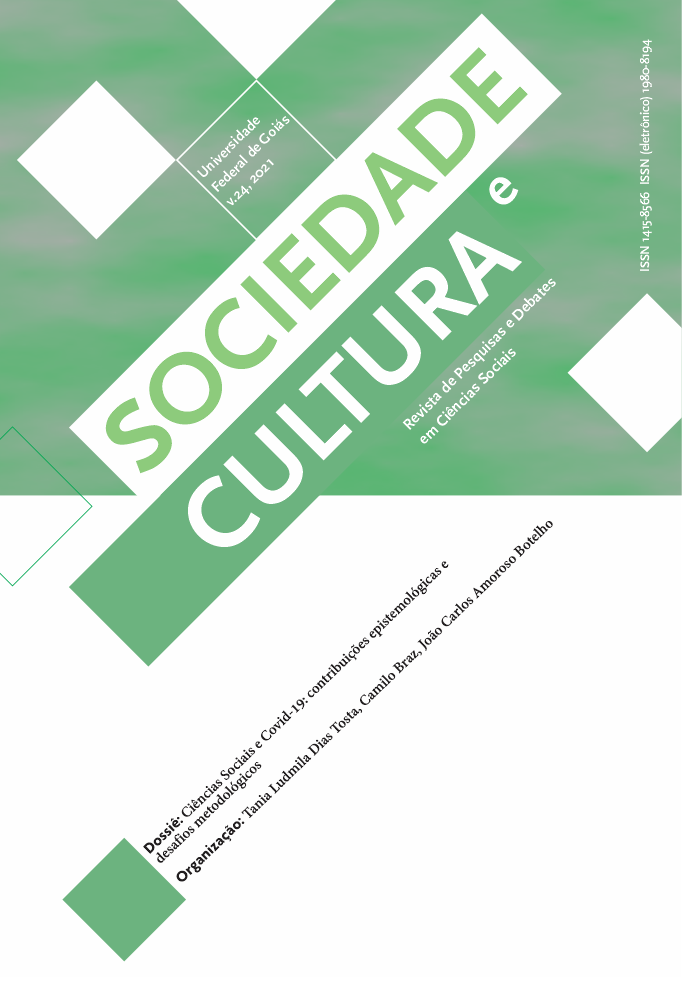State, pandemic and reproduction of intersectional inequalities in Brazil: a reflection based on the coloniality/decoloniality tension
DOI:
https://doi.org/10.5216/sec.v24.66307Abstract
Since 2015 Brazil has been adopting more intensely the neoliberal rhetoric of economic adjustment and, consequently, the country has been extending its multiple types of social inequality aggravated by the arrival of the pandemic. Therefore, this article aims to examine how decolonial thinking can contribute to reading the Brazilian state sphere in tackling the pandemic in face of the reproduced intersection of class, racial, and gender inequalities. Based on a critical bibliographic review, the coloniality/decoloniality tension has been adopted as an analytical key to analyzing this social reality. Tensioning allows us to identify that, if on the one hand, there is a neoliberal rationality that colonizes the State and society, on the other, the Epistemologies of the South resist and exist – (r)exist – along with, more specifically, decolonial thought, which do make the (r)existence experiences and practices of social struggles visible. A greater presence of the Brazilian state sphere is then required as a way of tackling the intersection of inequalities, even during a strongly neoliberal government. Thus, it is necessary to advance in building an agenda for reflection and discussion about the processes reproducing intersectional inequalities.
Downloads
Downloads
Published
How to Cite
Issue
Section
License
Copyright (c) 2021 Sociedade e Cultura

This work is licensed under a Creative Commons Attribution 4.0 International License.
Authors who publish in this journal agree to the following terms:
- Authors retain the copyright and grant the journal the right of first publication, the work being simultaneously licensed under the Creative Commons Attribution License, which allows the sharing of the work with acknowledgment of authorship and of the initial publication in this journal;
- Authors are authorized to enter into additional contracts separately, for non-exclusive distribution of the version of the work published in this journal (eg, publishing in an institutional repository or as a book chapter), with acknowledgment of authorship and of the initial publication in this journal;
- Authors are allowed and encouraged to post and distribute their work online (eg, in institutional repositories or on their personal page) at any point before or during the editorial process, as this can bring productive change as well as increases the impact and the citation of the published work (see O Efeito do Acesso Livre).



